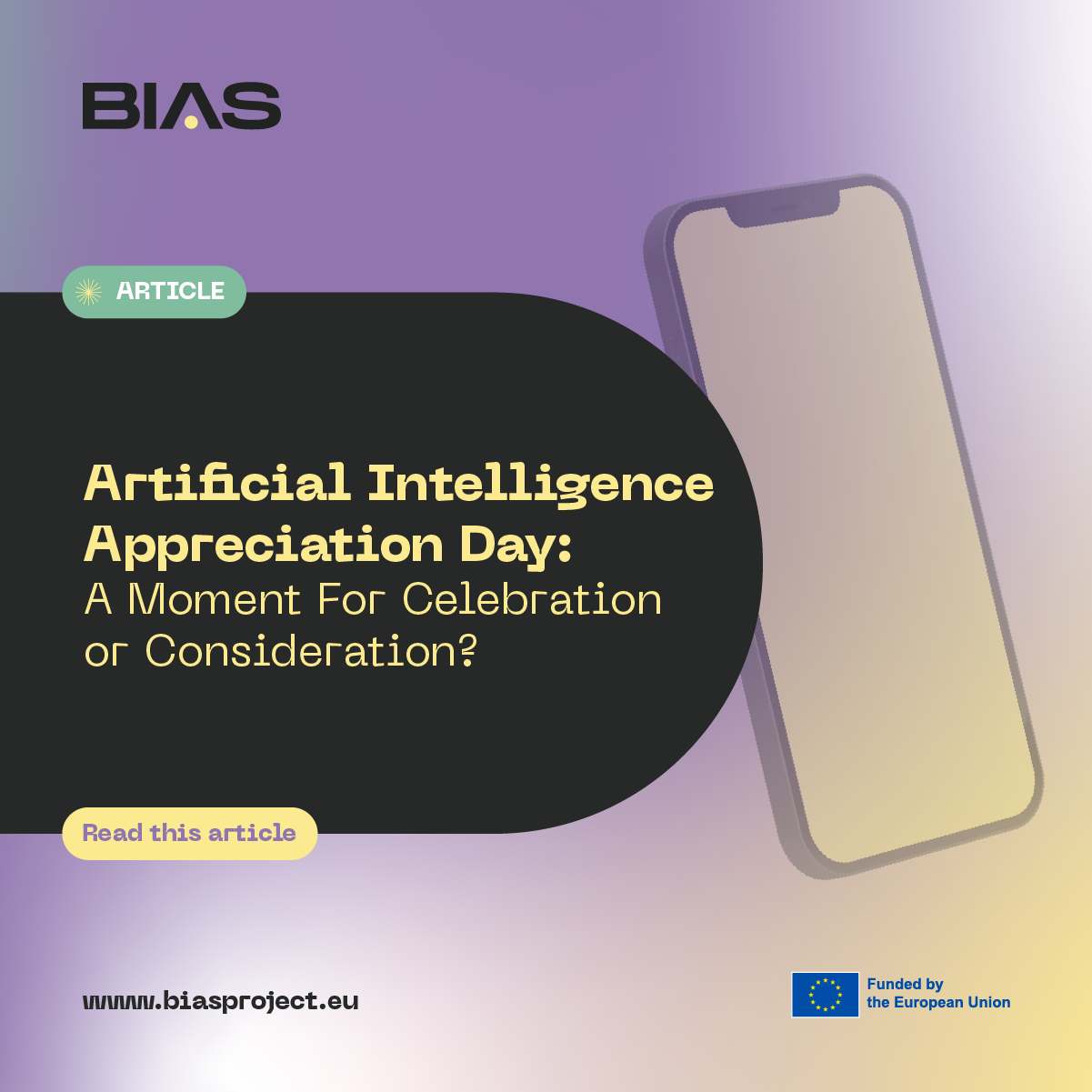16th July 2025
Today, 16 July, Artificial Intelligence Appreciation Day is being observed—an occasion introduced in 2021 by a little-known company named A.I. Heart LLC. The origins of this day raise valid questions: the company does not appear to be affiliated with any academic institutions, professional associations, or governmental and civil society organizations. Rather, it seemingly uses marketing AI-themed merchandise—from T-shirts to mugs—as a way of “celebrating” artificial intelligence.
While it would be easy to dismiss the initiative as a marketing exercise devoid of critical engagement, this annual observance nevertheless presents an opportunity for reflection. It invites us to consider not only the role of AI in contemporary society but also its growing influence in the world of work. Within the framework of the BIAS project, this moment can be repurposed as a space for critical consideration rather than uncritical celebration.
AI systems are frequently introduced into the labour market with the promise of enhancing efficiency, flexibility, and objectivity. For this purpose, they are now commonly used to generate job advertisements, screen applications, and incorporate automated tools to support decision-making in human resources (HR) practices. Such technologies can also facilitate continuous and remote engagement with candidates and employees, thereby accommodating diverse schedules and personal circumstances. Beyond these operational advantages, AI systems are often positioned as a means to reduce human bias, fatigue, or inconsistency, particularly in tasks such as candidate evaluation or policy implementation. In this respect, it is understandable why some may wish to acknowledge and even celebrate AI’s contributions to these widely promoted benefits.
Yet, the very same day also gestures toward the importance of ‘AI ethics’—a theme that is central to the BIAS project. Our work begins from the premise that AI systems, particularly when deployed in the labour market, bring not only potential benefits but also significant risks. These systems are rarely introduced into neutral environments. Rather, they become embedded within workplace structures already marked by information asymmetries, unequal power relations, and economic dependency.
As such, their use can entrench existing vulnerabilities and inequalities among workers and job applicants. Several critical concerns emerge in this context, including:
In short, the deployment of AI in recruitment and employment contexts is neither neutral nor universally beneficial. This raises critical questions about what ‘fair AI’ in the labour market is or should entail—a subject the BIAS project has explored through scholarly publications from both legal and interdisciplinary perspectives.
As a result, rather than discarding the notion of Artificial Intelligence Appreciation Day altogether, perhaps it is more productive to reimagine its purpose. What if this day were used not to celebrate AI uncritically, but to foster public dialogue, raise awareness, and promote accountability in AI development and deployment?
This is the orientation of the BIAS project. Across our partner countries, we’re achieving this by facilitating co-creative processes, delivering training programs, conducting interdisciplinary research, organizing cross-sector panels, and giving guest lectures in different settings.
To mark this year’s Artificial Intelligence Appreciation Day, invite all labour market stakeholders—from AI developers, HR practitioners, and trade union representatives to workers and policymakers—to join this crucial, ongoing conversation. Additionally, keep an eye out for upcoming training sessions this autumn, and remember that our national labs are always open for multi-stakeholder engagement.
